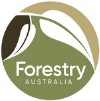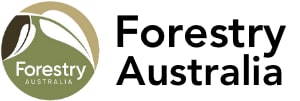
Misleading report conflates sustainable forestry with deforestation
MEDIA RELEASE
15 January 2021
The professional association representing some 1,000 forest scientists, researchers and professional forest land managers, the Institute of Foresters (IFA/AFG), has sought to clarify misleading commentary from the WWF conflating sustainable forestry with deforestation.
“Land clearing or land-use change is when forests are converted for example to urban development and agriculture,” Mr Gordon said.
“It is important that land clearing or de-forestation that converts forests to other land uses should not be confused with sustainable forestry – they are two very different activities.
“Sustainable harvesting in Australia’s forests has a very small foot-print and our sustainable forest management sees replanting as well as reestablishment of forests after a harvest operation.
“The WWF report in question incorrectly labels timber harvesting and private native forestry as contributing factors of deforestation and degradation.
“Timber production involves harvesting and then regenerating areas of forest and so does not cause permanent removal of tree cover – therefore it cannot be classed as deforestation as per the internationally accepted definition of the Food and Agriculture Organisation (FAO) of the United Nations.”
The FAO defines deforestation as follows:
The conversion of forest to another land use or the long-term reduction of the tree canopy cover below the minimum 10 percent threshold.
Explanatory note:1
- Deforestation implies the long-term or permanent loss of forest cover and implies transformation into another land use. Such a loss can only be caused and maintained by a continued human-induced or natural perturbation.
- It includes areas of forest converted to agriculture, pasture, water reservoirs and urban areas.
- The term specifically excludes areas where the trees have been removed as a result of harvesting or logging, and where the forest is expected to regenerate naturally or with the aid of silvicultural measures.
Mr Gordon said informed ecological forest management would ensure the benefits provided by Australia’s forest could continue to be enjoyed for years to come.
“Australia’s Regional Forest Agreements are a legal agreement developed 20 years ago to conserve our forests, forest biodiversity and provide Australians with a sustainable and ethical timber supply,” Mr Gordon said.
“This is why we are calling for Australians to plant more trees, improve the management of our forests across all tenures as well as adopt active forest management throughout the nation to respond to our changing climate and bushfire threat.
“If implemented, these initiatives, along with ecological forest management will ensure that our vulnerable forest flora and fauna is preserved, for all Australians to enjoy,” Mr Gordon said.
- Forests and Climate Change Working Paper No. 5: Definitional issues related to reducing emissions from deforestation in developing countries, FAO, Rome, 2007.
Media contact
Becher Townshend
Font
PR 0418 370 661

